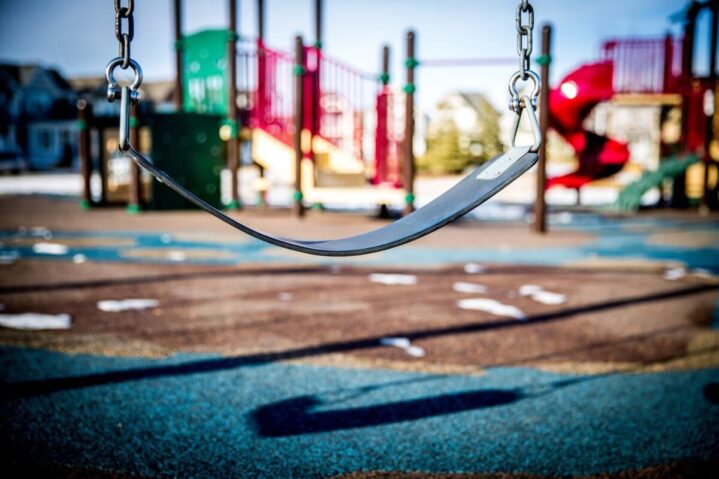
How we can learn to inspire our children
Inspiration helps children to think of new opportunities, propel them from apathy to possibility and change the way they see their own potential.
It would be wrong to say that I hated my piano lessons. At the age of 14 I cared so little that I didn’t put in the energy to hate them. My parents had told me that learning the piano would be good for me, whatever that meant. It certainly wasn’t true by any definition that I believed of good things as a confused and needy teenage boy. I went to the lessons, played the scales and arpeggios, prepared for the exams, scraped passes and had more classes. Certificates and old music piled up in the piano stool and on it went. It seemed to make my parents happy and as my brother and sisters were all older and had passed more exams than me these family pull and push factors kept me going. But it didn’t make me like it. I attended the lessons religiously and with the same sacred fervour one sees in an infant being dragged screaming into church. Things were made even worse by the fact that I had piano lessons after school, after sport and the cold, dark evenings were the worst of all. I would go to my piano teacher’s house with bruises and cut knuckles after two hours of hockey training with an attitude not at all in harmony with the nuances of music and the intricacies of keyboard techniques.
One evening, sucking my knuckles to staunch the bloody grazes and warming my fingers I was in a foul mood. Throwing my sports bag in the corner of the room I sat slumped in front of the piano dreading the arrival of my teacher. I was cold, the house was cold and I hadn’t practiced all week so I was in for a scolding. I would stumble over the keys, she would write in my notebook in capitals if I had played badly and there were always a lot of capitals. It would be really bad but at least it would all be over in 45 minutes. When the door creaked open I was disturbed to see not her but an elderly white haired man creep around the door. His wife, my teacher, was ill and he was going to take the lesson. He told me this in the shaky, high tones of a man who I assumed, summoning all the experience of my 14 years, to be well over 100. Could things get any worse? If she was ill I had banked on the lesson being cancelled but now I was going to have to perform to a stranger. I had no idea how he would react to my terrible playing.
This little old man sat next to me, asked me to play my exam pieces and I lurched along bar after bar, page after page until both hands reached the end at not exactly the same time. I stared at the keys, at the music, at the wall, anywhere but at him. There was a long pause. I am sure he was looking at the back of my head. I don’t enjoy it and I was sure he was not having a good time either. What were we both doing there? When would it end?
“What else are you learning to play at the moment?” he asked, after what felt like an eternity of discomfort and silent embarrassment. What else? I thought. Why would I be playing anything else? I played what I was told to play, I didn’t practice enough, I took a verbal mauling every so often for my troubles, I sat exams and the cycle continued. How could there be anything else? I didn’t know how to answer and so sat in silence. He helped me out by asking, “Sorry, I mean what are you playing for fun?” I was completely stumped. I mumbled an answer about being busy, about not being sure what else to play and hoped that we would move on. Surely it was time to go. It wasn’t. He didn’t move on. He just said something else.
“I won’t charge you for this lesson. Instead I want you to use the money to buy some music that you like. Learn to play it. Just for fun. Not for me, do it for you.”
That weekend I went out and did as I was told. I was stunned by this simple idea and his kind approach. He focussed on me enjoying myself, not the music or the lessons. I bought the book of sheet music for Captain Fantastic and the Brown Dirt Cowboy, by Elton John. I had the album and loved it, my male friends loved it and the few girls I knew seemed to love it too. Amazingly the songs weren’t as hard to play as I thought and I realised that all the boring practice, all the scales, chords, arpeggios and the discipline of timekeeping were pretty useful. I learned to play it all, just for fun, just for me and later with friends. It started a love affair with the piano that has lasted the rest of my life. It led to me buying shelf-fulls of music as well as a few pianos and practicing long after the lessons stopped. In truth, I am still not a very good but I made a living as a pianist for a while and I don’t think I could live in a house that didn’t have a piano in it. It’s a thing I do to relax, to test myself, to shake off the challenges of the day, to entertain my friends and I just love the sound it makes.
I never saw the old man again. I never thanked him. I never knew he was a successful composer and a close friend of the legendary Sir Yehudi Menuhin. I never read the loving, respectful and lengthy obituary in The Daily Telegraph when it appeared. I learned he died a few years after our encounter and he was nowhere near 100. If I hadn’t spent time in the company of the husband of my sick piano teacher I’m sure I would have given up playing. I would have been one of those people who used to play but gave up, wistfully thinking they should have stuck at it. He made all the difference where and when I never expected it. He inspired me.

Inspiration is a rare and precious commodity, especially valuable when bestowed upon the young. In schools we can become all too obsessed with measuring ability through exams and tests and can overlook the role of inspiration. In fact, instead of ignoring it we should recognise that inspiration can be the vital spark that ignites amazing changes and opens up new possibilities. Inspiration helps children to think of new opportunities; it can propel them from apathy to possibility and change the way they see their own potential. Sadly history and fiction have tended to see it as mystical or even divine and this hasn’t helped. In truth, we can all be inspired by what and who is around us. Research shows that it’s not down to luck. Inspiration can be activated, captured and directed and it can have a major effect on important life outcomes. As psychologists and inspiration-exerts Todd Thrash and Andrew Elliot put it, “The heights of human motivation spring from the beauty and goodness that precede us and awaken us to better possibilities.”
Thrash and Elliot found that inspired people were more open to new experiences, they were not more conscientious or hardworking than anyone else, in fact they tended to be less competitive and more optimistic. It seems they are people looking to be stimulated, open to the new and the different and not particularly focussed on the achievements of those around them. This is not so easy to manage in a school if you want everyone to be the same, to blindly follow orders and compete against each other. However it makes for a much more exciting and stimulating world if you are brave enough to let children follow their dreams and dare to be different.
When I was a headmaster in the UK, I invited an Arctic explorer into school to talk to the students. I really wanted to wake them up to different and better possibilities. The explorer had spoken in over a thousand schools all over the world and always asked the audience who their inspiration was. It’s a great question! We spoke afterwards and he told me that in the UK and the USA when he asks children they say they are inspired by pop stars, footballers and TV personalities but in many Asian countries the children say they want to be like their parents.
This is a very telling observation and although anecdotal, it feels true enough to me. It is a reminder to parents that what they do and say in front of their children matters every day and their influence is enormous. Inspiration can change a child’s life forever and we all have this phenomenal power within us.
Peter Hogan has been the Head of schools in the UK and Asia for 20 years. He writes about schools, teaching and learning at www.hogan.education and is a qualified Life Coach. He can be contacted at [email protected]



